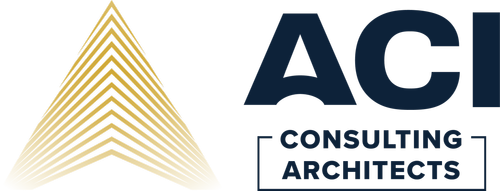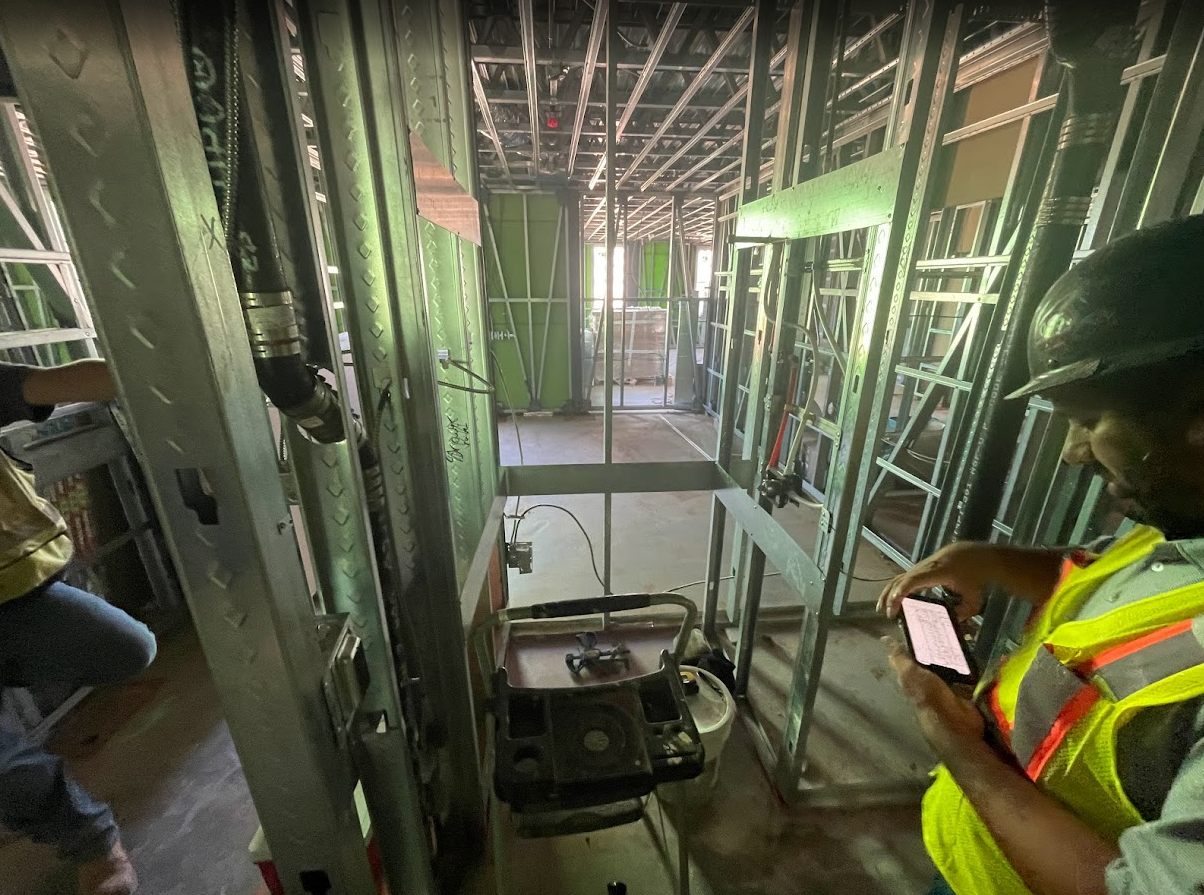Before It Becomes a Lawsuit: Why Proactive Accessibility Reviews Protect More Than Compliance
How proactive accessibility reviews and inspections protect more than compliance.
Clarity Before Conflict
Most accessibility lawsuits do not start with bad design; they begin with minor, fixable oversights. A threshold that is a fraction too high. A ramp that flattens before the landing. A door clearance with just a little too much slope. These details may seem minor during construction, but they are often what trigger ADA lawsuits, Fair Housing complaints, and premises liability claims after occupancy. The common thread is that someone assumed compliance was covered. At ACI Consulting Architects, we help project teams catch these issues before they ever reach that point. Through Accessibility Reviews, Fair Housing Reviews, and Building Code Reviews, our proactive inspections protect timelines, budgets, and reputations.
Why "Close Enough" Is Not Compliance
Across the country, we see the same trend: teams focus on large-scale compliance, such as sprinklers, structure, and energy, while treating accessibility as a late checklist item. But accessibility standards found in the ADA, Fair Housing Act, and International Building Code (IBC) do not leave much room for interpretation. A landing that exceeds a 2 percent slope may drain well, but it no longer qualifies as a level maneuvering clearance. A door pair that meets the building code's width may still fail the ADA clear opening requirement. These minor discrepancies are what open the door to claims and enforcement actions. Accessibility is not about perfectionism; it is about precision.
The Value of Proactive Accessibility Inspections
Our approach begins long before ribbon-cutting or permit closeout. Proactive inspections during construction identify conditions that paper reviews can miss, such as site grading shifts, misaligned slopes, or improperly installed thresholds. Each review or inspection creates a clear record of compliance efforts. In the event of a complaint, that documentation becomes a robust defense, demonstrating due diligence under both federal accessibility laws and state-adopted building codes. These proactive reviews are not only about ADA and Fair Housing compliance; they are about protecting your investment from slip and fall risks, premise liability, and costly post-occupancy retrofits.
Adding Due Diligence Surveys to the Equation
Accessibility and code compliance do not end when a project opens, nor do they begin when drawings are stamped. Many of the calls we receive today come from developers and investors performing due diligence surveys before acquisition. These surveys identify accessibility, Fair Housing, and Building Code deficiencies that could affect property value, financing, or resale potential. A due diligence accessibility inspection can uncover items that may not stop a sale but could trigger significant post-closing obligations, such as barrier removal under the ADA or retrofit requirements under Fair Housing laws. When paired with a Building Code Review, this type of assessment provides a complete picture of compliance risk and capital planning needs. For investors, it is a small investment that prevents surprises and strengthens negotiating position before closing day.
Navigating State and Federal Requirements
Accessibility enforcement varies from state to state, but the fundamentals remain consistent.
In Texas, for example, Registered Accessibility Specialists (RAS) conduct reviews and inspections under the Texas Accessibility Standards (TAS), which are aligned with the Americans with Disabilities Act (ADA).
Other states rely on local code officials or third-party consultants to verify compliance with the International Building Code and ANSI A117.1.
ACI's consultants work across both models. We perform TAS Reviews and TAS Inspections for Texas-based projects while providing ADA, Fair Housing, and Building Code Reviews nationwide. That dual expertise allows us to help architects, owners, and contractors reconcile differences between the ADA, Fair Housing Act, and International Code Council (ICC) standards, ensuring each project is defensible no matter the jurisdiction.
When Accessibility and Fair Housing Intersect
In mixed-use and multifamily developments, accessibility responsibilities often overlap. Leasing offices and amenities typically fall under the ADA, while dwelling units and shared spaces trigger the Fair Housing Act's design and construction requirements. Our Fair Housing Reviews and Fair Housing Inspections clarify those boundaries early. We identify which areas fall under each standard and flag potential conflicts, such as thresholds that pass ADA but fail FHA maneuverability or unit kitchens that lack proper clear floor space. Coordinating accessibility and Fair Housing compliance before construction is one of the most effective ways to prevent rework and defend against housing discrimination complaints later.
Beyond Accessibility: The Role of Code Reviews
Accessibility is just one piece of the compliance puzzle. Many accessibility issues originate in the Building Code itself, where occupancy, fire separation, plumbing fixture counts, and egress requirements overlap with accessible design criteria. Our Building Code Review process integrates accessibility at every step, ensuring alignment between ADA, IBC, and local code amendments. Whether a project is seeking a building permit, addressing plan review comments, or preparing for final inspection, we make sure accessibility requirements are embedded in the broader compliance strategy. This integrated approach not only reduces project risk but also improves coordination among architects, contractors, and owners, helping ensure that "compliant on paper" truly means compliant on site.
Documentation Is Your Best Defense
When disputes arise, documentation often determines the outcome. Our reports provide detailed references to applicable standards, annotated plan markups, and photo records that can support design intent, field conditions, or corrective actions. This record keeping has proven invaluable in Expert Witness and Premise Liability cases involving ADA, Fair Housing, and Slip and Fall claims. Whether defending an architect, owner, or property manager, a well-documented review or inspection can demonstrate diligence, mitigate exposure, and protect professional reputation.
Why Proactive Matters
By the time an accessibility issue becomes a lawsuit, it is no longer about compliance; it is about perception. An early investment in a TAS Review, Fair Housing Review, or Building Code Review is far less costly than legal fees, schedule delays, and public scrutiny. Accessibility is not only a legal requirement; it is a reflection of professional integrity. Whether your project is in Texas or beyond, proactive accessibility inspections and reviews ensure your buildings are not only compliant but defensible, usable, and equitable.
Protecting Projects Before Problems Arise
Whether you are designing, building, or acquiring a property, now is the time to get ahead of potential compliance risks. ACI’s team of Registered Accessibility Specialists, architects, and code consultants provides proactive Building Code Reviews, Fair Housing Inspections, Accessibility Reviews, and Due Diligence Surveys that identify issues before they become liabilities. Our goal is to keep your projects defensible, accessible, and fully documented — protecting both your investment and your reputation. When it comes to accessibility and code compliance, the best defense is prevention.




